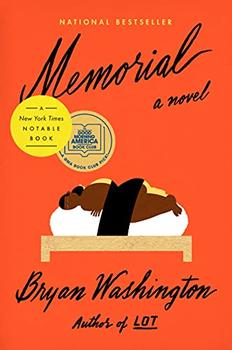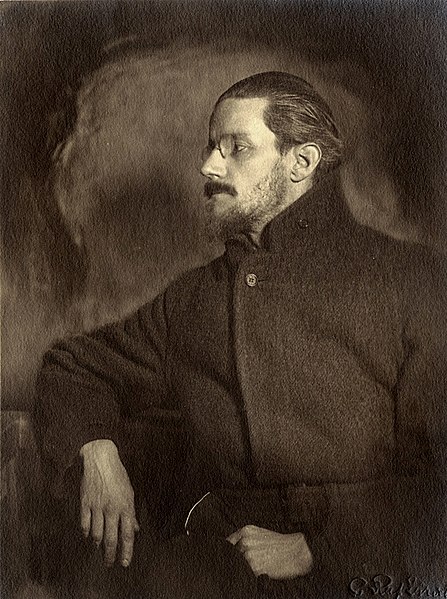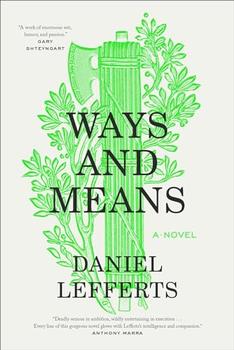Summary | Excerpt | Reviews | Beyond the book | Read-Alikes | Genres & Themes | Author Bio

What happens when a love story collides with the limits of love--and everyone has an opinion?
Benson and Mike are two young guys who live together in Houston. Mike is a Japanese American chef at a Mexican restaurant and Benson's a Black day care teacher, and they've been together for a few years -- good years -- but now they're not sure why they're still a couple. There's the sex, sure, and the meals Mike cooks for Benson, and, well, they love each other.
But when Mike finds out his estranged father is dying in Osaka just as his acerbic Japanese mother, Mitsuko, arrives in Texas for a visit, Mike picks up and flies across the world to say goodbye. In Japan he undergoes an extraordinary transformation, discovering the truth about his family and his past. Back home, Mitsuko and Benson are stuck living together as unconventional roommates, an absurd domestic situation that ends up meaning more to each of them than they ever could have predicted. Without Mike's immediate pull, Benson begins to push outwards, realizing he might just know what he wants out of life and have the goods to get it.
Both men will change in ways that will either make them stronger together, or fracture everything they've ever known. And just maybe they'll all be okay in the end. Memorial is a funny and profound story about family in all its strange forms, joyful and hard-won vulnerability, becoming who you're supposed to be, and the limits of love.
Brief flashbacks to how Benson and Mike met, and to key moments in their life together – discussions they've had about whether "okay" is good enough, the handful of times Benson remembers Mike saying "I love you" to him – create a tender backstory for a limping romance, leaving the way open for the characters to patch things up, despite the dalliances they've had while apart. The novel suggests that, whether the relationship survives or not, it has truly mattered. Washington excels at exploring the dynamics and psychology of relationships, showing what happens when you throw two hostile characters together, or put two very different families in a room, or have two guys who share a lover meet for the first time. I was especially struck by Benson and Mike's complicated feelings for their fathers. Despite the tough issues the characters face, their story is warm-hearted rather than grim...continued
Full Review
(818 words)
This review is available to non-members for a limited time. For full access,
become a member today.
(Reviewed by Rebecca Foster).
 A lack of quotation marks around dialogue is a pet peeve for some readers. Yet it seems to be an increasingly popular stylistic choice in literary fiction, and one that Bryan Washington opts to use in his debut novel Memorial. You may have also encountered this approach in books by Jesse Ball, Junot Diaz, Bernardine Evaristo, Kate Grenville, Kent Haruf, Daisy Johnson, Miranda July, Cormac McCarthy, Sarah Moss, Sigrid Nunez, Max Porter, Ali Smith, Sarah Winman and Jacqueline Woodson.
A lack of quotation marks around dialogue is a pet peeve for some readers. Yet it seems to be an increasingly popular stylistic choice in literary fiction, and one that Bryan Washington opts to use in his debut novel Memorial. You may have also encountered this approach in books by Jesse Ball, Junot Diaz, Bernardine Evaristo, Kate Grenville, Kent Haruf, Daisy Johnson, Miranda July, Cormac McCarthy, Sarah Moss, Sigrid Nunez, Max Porter, Ali Smith, Sarah Winman and Jacqueline Woodson.
Quotation mark usage as we know it only dates back to the 16th century, making it a relatively new form of punctuation. Earlier manuscripts indicated speech in a variety of other ways: with the speaker's name, by italicizing speech or by underlining. ...
This "beyond the book" feature is available to non-members for a limited time. Join today for full access.

If you liked Memorial, try these:

by Allen Bratton
Published 2024
Crackling with intelligence and wit, Henry Henry is a brilliant recasting of the Henriad in which Hal Lancaster is a queer protagonist for a new era.

by Daniel Lefferts
Published 2024
A searing debut novel about a striving finance student, the line between ambition and greed, and the disordered politics of our era.
The purpose of life is to be defeated by greater and greater things.
Click Here to find out who said this, as well as discovering other famous literary quotes!